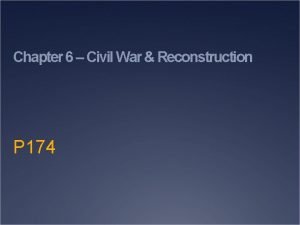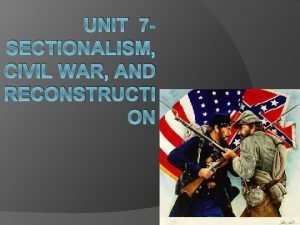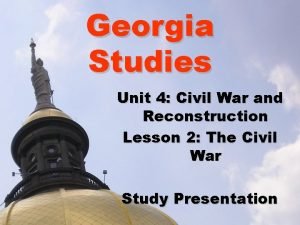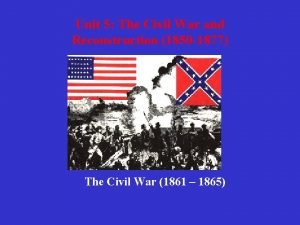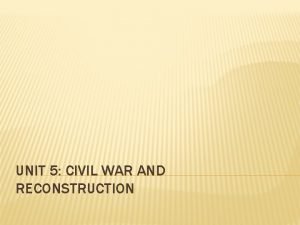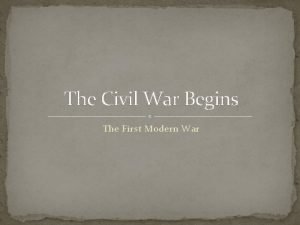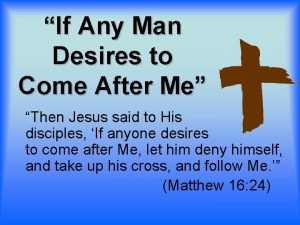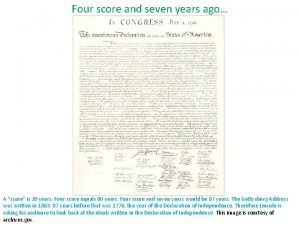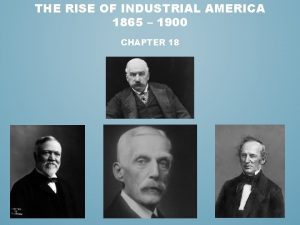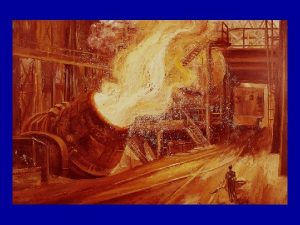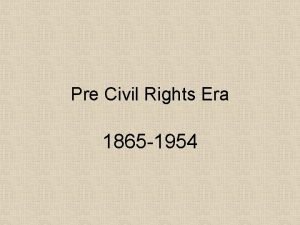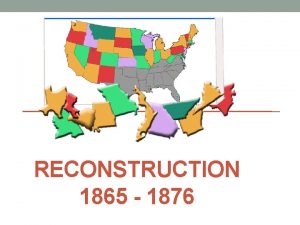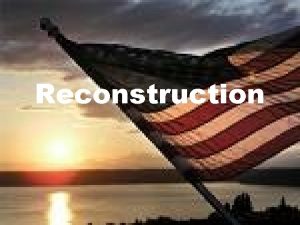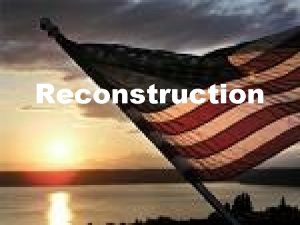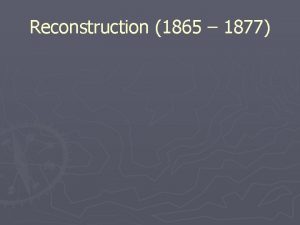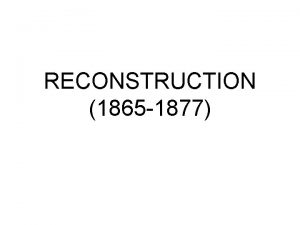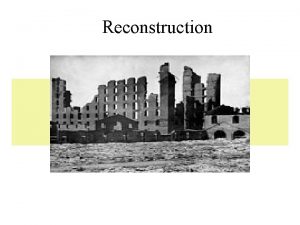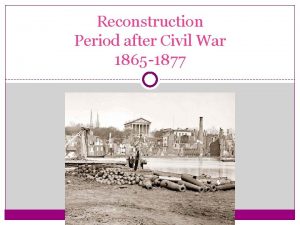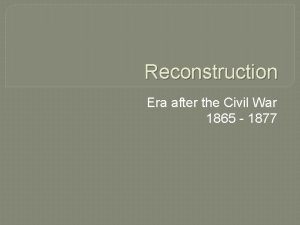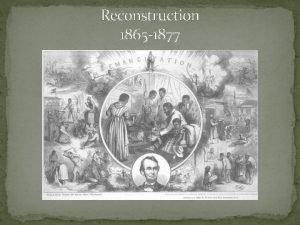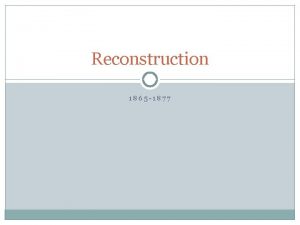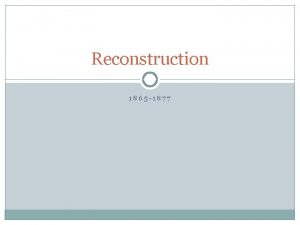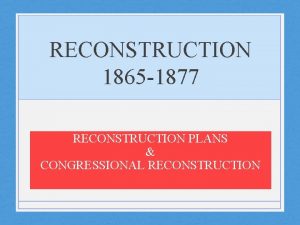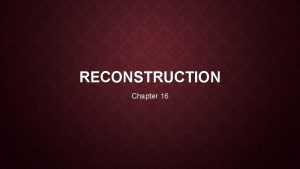Reconstruction The years after the Civil War 1865



















- Slides: 19

Reconstruction The years after the Civil War 1865 -1877

Reconstruction: The process of reuniting the nation and rebuilding the southern states in the absence of slavery (1865 -1877).

1. What problems might a newly emancipated slave encounter?

The following slides are ways in which the FEDERAL government attempted to incorporate a free black population into the United States.

Amendments to the Constitution 13 th Amendment: Made slavery illegal throughout the United States (January 1865). 14 th Amendment: Guaranteed citizenship and equal protection under the law to all people born or naturalized within the United States (except American Indians) (1866). 15 th Amendment: Gave African American men the right to vote in the United States (1870).

Reconstruction Acts of 1867 • Divided the South into five districts that were controlled by military commanders • Southerners had to create new constitutions that supported the 14 th Amendment • States had to give African Americans the right to vote (later the 15 th Amendment)

Freedmen’s Bureau A federal agency established after the war to help blacks make the transition from slavery to freedom • Distributed food • Provided education and legal help to newly freed people • Sharecropping plan: black families would rent small plots of land in return for a portion of their crop, to be given to the landowner at the end of each year. • “ 40 acres and a mule”

2. How did the Federal Government attempt to aid Reconstruction in the south? Give specific examples.




Helped a Newly Freed Population Carpetbaggers – Northern born Republicans that came to help the South during Reconstruction Radical Republicans – Strong members of the Republican Party who opposed slavery Thaddeus Stevens – Radical Republican that wanted equal rights and the vote for African Americans Scalawags – Southern Republicans

Challenges to Reconstruction President Andrew Johnson – Democrat who vetoed the Civil Rights Act of 1866 and did not support the 14 th Amendment Black Codes – Laws that limit the civil rights of African Americans Ku Klux Klan – created in 1866, opposed African American civil rights. Used violence and terror to support their cause

Challenges Continued Poll tax – pay to vote Literacy test – pass to vote Grandfather clause – if your father or grandfather could vote before 1867, you don’t need to pay or pass a literacy test to vote. Jim Crow Laws – laws that enforced segregation Plessy v. Ferguson – court case that ruled separate but equal facilities were legal (segregation is legal)



3. Was Reconstruction successful? Explain.

Acrostic Poem Black Codes 15 th Amendment Reconstruction Freedman’s Bureau President Andrew Johnson Radical Republicans Klan Thaddeus Stevens Ku Klux Civil Rights Act President Ulysses S. Grant Scalawags Poll Tax Grandfather clause 14 th Amendment Carpetbaggers Jim Crow Government Plessy v. Ferguson Democrats 13 th Amendment Federal

Very important in a democracy Open to all U. S. citizens Trouble for blacks to cast their ballot even after the 15 amendment Elections of state and national governments th
 Chapter 6 civil war and reconstruction
Chapter 6 civil war and reconstruction Quizlet
Quizlet Unit 4: civil war and reconstruction
Unit 4: civil war and reconstruction Unit 5 civil war and reconstruction
Unit 5 civil war and reconstruction Civil war and reconstruction study guide
Civil war and reconstruction study guide Unit 5 civil war and reconstruction
Unit 5 civil war and reconstruction Why was the civil war the first modern war
Why was the civil war the first modern war Chapter 16 lesson 2 challenges to slavery
Chapter 16 lesson 2 challenges to slavery John 14
John 14 After me after me after me
After me after me after me Goat years to human years
Goat years to human years 300 solar years to lunar years
300 solar years to lunar years Four score and ten years ago
Four score and ten years ago Civil rights webquest
Civil rights webquest The rise of industrial america 1865-1900
The rise of industrial america 1865-1900 Industrialization (1865 to 1901 worksheet answers key)
Industrialization (1865 to 1901 worksheet answers key) Impressionism characteristics
Impressionism characteristics How did renoir glamorize his clientele?
How did renoir glamorize his clientele? 1954-1865
1954-1865 1865 to 1900 inventions
1865 to 1900 inventions
